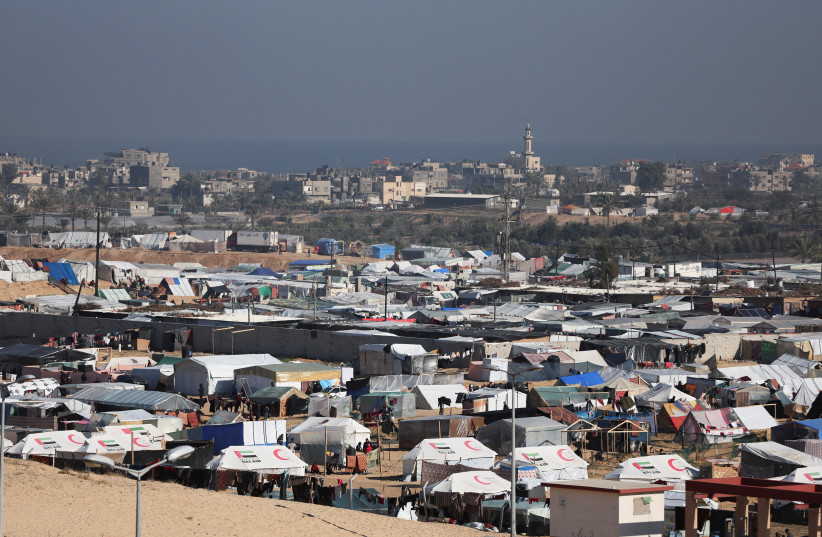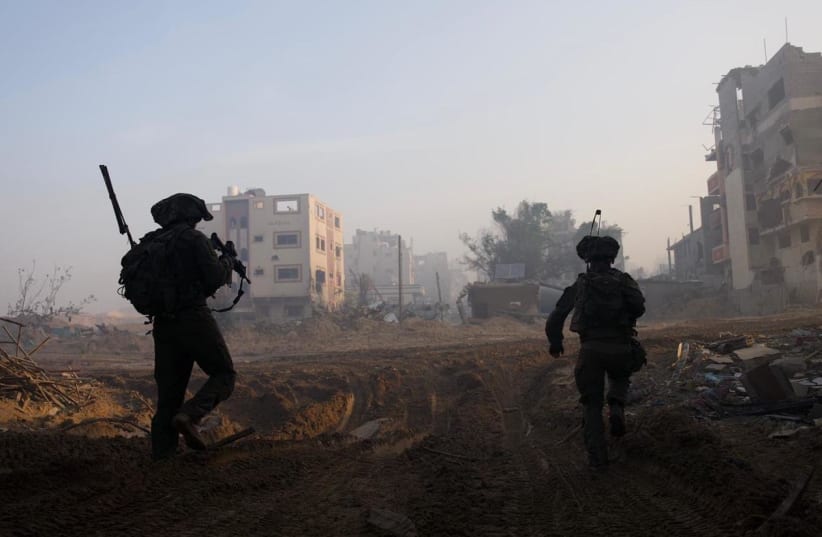Egypt has rejected a proposal by Israel for greater Israeli oversight over the buffer zone on the Egypt-Gaza border and is prioritizing efforts to broker a ceasefire before working on post-war arrangements, three Egyptian security sources said.
Egypt shares a 13km (8 mile) border with Gaza which is the only border of the Palestinian coastal enclave not directly controlled by Israel. Along with Qatar, Egypt has also played a leading role in talks to broker a new ceasefire in Gaza and secure a deal for the release of Israeli hostages held by Hamas.
The Egyptian sources said that during those talks Israel had approached Egypt about securing the Philadelphi Corridor, a narrow buffer zone along the border, as part of Israeli plans to prevent future attacks.
The current conflict began on Oct. 7 when Hamas launched an incursion during which Israel said 1,200 people were killed and some 240 hostages captured.
Israel has retaliated with an offensive that has killed more than 23,000 people, according to Gaza officials, and driven most of the territory's 2.3 million people from their homes.


An Israeli official, speaking on condition of anonymity, said joint monitoring Philadelphi Corridor with Egypt was among issues that have been discussed by the countries.
Asked if Egypt had refused, the Israeli official said: "I'm not aware of that."
Egypt's state-linked Al Qahera News cited an anonymous source on Monday as saying that recent reports of planned cooperation between Egypt and Israel on the corridor were false.
The head of Egypt's State Information Service did not respond to a request for comment.
The Egyptian sources said that Israeli officials did not discuss control of the corridor during the current ceasefire talks, but instead asked to participate in monitoring the area, including by sharing usage of new monitoring technology Israel would procure.
Egyptian negotiators rejected the idea, but Egypt has bolstered the physical barriers on its side of the border, the sources said.
Egypt is prioritizing reaching a new ceasefire agreement as the necessary foundation for discussions about post-war Gaza, including securing the corridor, the sources added.
Tunnels
Egyptian Foreign Minister Sameh Shoukry said on Tuesday that the priorities for Gaza were a ceasefire, delivery of aid, and preventing displacement of Gazans into Egypt.
Israel controlled the Philadelphi Corridor until 2005 when it ended its occupation of the Gaza Strip. Hamas seized control of Gaza in 2007. Late last month, Israeli Prime Minister Benjamin Netanyahu said Israel sought to re-assert control of the corridor, under which Palestinians have long run underground tunnels.
The number of tunnels began increasing in 2008, as Palestinian smugglers and terrorists used them to evade an Israel economic blockade and to bring weapons into the enclave. But an Egyptian military campaign that began in 2013 managed to destroy most of them, Palestinian sources say.
"Egypt made clear it closed all tunnels on its side of the border, but Israel is still unable to absorb or understand that what they saw in Gaza could be all locally-manufactured, or developed," said Ashraf Abu el-Houl, managing editor of Egyptian state-owned paper Al-Ahram and a specialist on Palestinian issues.
Abou el-Houl said Israel could effectively control the border buffer zone from afar through its firepower, without needing to take direct control.
There have been repeated bombardments near the border area, including at the Rafah Crossing, which has been used to bring humanitarian aid into Gaza from Egypt and to evacuate small numbers of the Palestinians needing urgent medical treatment.
